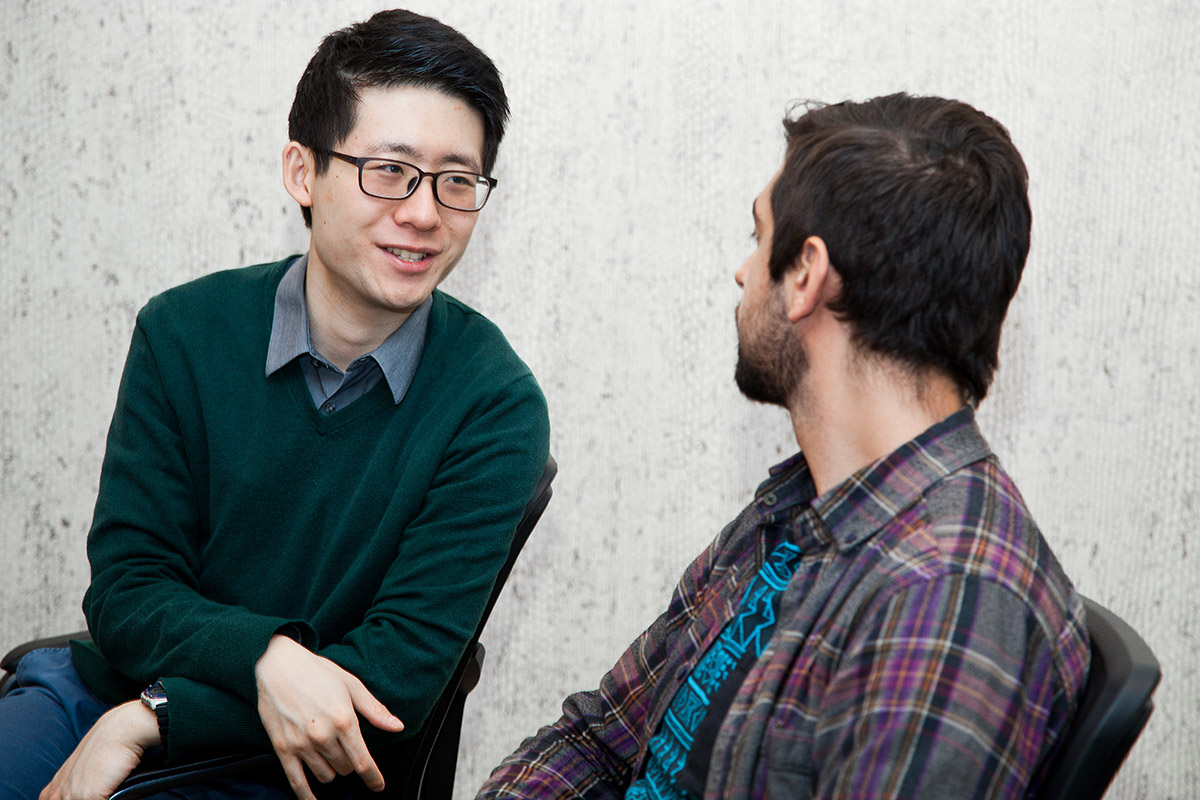Ilyas shares his insights on the powerful role of peer support in working toward recovery.
Why is it that some people “get” us while other people simply rub us the wrong way, what kind of person can truly understand what we have gone through, and how can we find people who are better suited to this role?
In this post, I am going to make the case for peer support in early intervention services to fill this role.
Let’s start off with a rudimentary definition of peer support. The Mental Health Commission of Canada’s Making the Case for Peer Support document defines peer support as “[…] any organised support provided by and for people with mental health problems or illnesses,” and while this is a good pushing off point, I think it deserves some elaboration. In early psychosis intervention (EPI) services, a peer worker is more than just someone who has been through similar situations in their journey through mental health. They are also trained to support the person they are listening to. Though “poor is the carpenter who has no tools”, a carpenter needs to know how to use those tools as well; someone who has a stack of lived experience but doesn’t know how to use their experiences to connect to another person can just as often do more harm than good.
The backbone of a peer relationship is just that, the relationship. Davidson’s Peer support among persons with severe mental illnesses: a review of evidence and experience shows us that “peer‐delivered services generating superior outcomes in terms of engagement of “difficult‐to‐reach” clients, reduced rates of hospitalization and days spent as an inpatient, and decreased substance use among persons with co‐occurring substance use disorders,” and that’s just in positions where the peer is in a conventional mental health position. Having someone who has “been there” creates an increase in someone’s ability to empathize with another person in a similar situation; they don’t need to imagine what it would feel like to be in the throws of psychosis, they can just think back to when it was happening to them. The same article talks about how the then (and sometimes still) prevalent idea of “‘moral treatment’” in old psychiatric hospitals was disbanded in part by hiring people with lived experience:
“As much as possible, all servants are chosen from the category of mental patients. They are at any rate better suited to this demanding work because they are usually more gentle, honest, and humane” — Jean Baptiste Pussin, in a 1793 letter to Philippe Pinel.
So what then of the context nowadays? Are we not different than the brutes of history? Well, in a 2017 study titled Exploring the impact of peer support in early intervention in psychosis, it seems that similar methods can cure our current “madness”. In a qualitative analysis of peer support in EPI settings the researchers found, “that [Peer Support] in the current [Early Intervention in Psychosis Service] related to: improved service engagement and greater understanding between service providers and users; which could be linked to better outcomes for service users (such as reduced duration of untreated psychosis (DUP))”. In other words, being able to understand the person who is sitting in front of them allowed them to better engage them in their care and minimize the amount of time people weren’t able to get treatment for their illness.
Now, I’ve talked about psychosis and peer support a lot here, and it’s all very well and nice, but why should you care? What authority do I have to write about this? My answer: lived experience.
I was diagnosed with my first episode of psychosis at twenty and had the good fortune of getting connected with an EPI team. Well, three to be exact. The first two were conventional services with well-qualified clinicians who had years of experience, but in the third, I met a peer who had been through similar trials as my own and was able to help me contextualize myself within the greater society. In the end, there is no one thing that “made me better”, no one thing that “cured” me, but there was one person who showed me through their very existence that my life was not over simply because I had gone through an episode of psychosis. And that person was my peer support worker.
Ilyas Khamis, Youth Advisor, Exploring the Link



